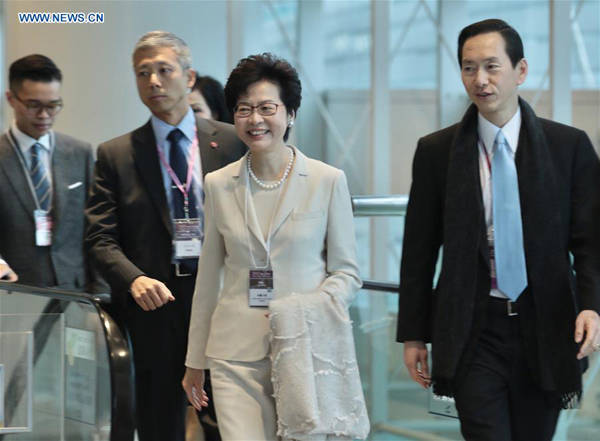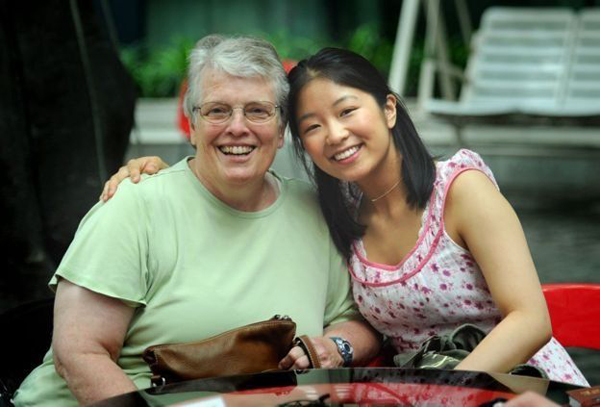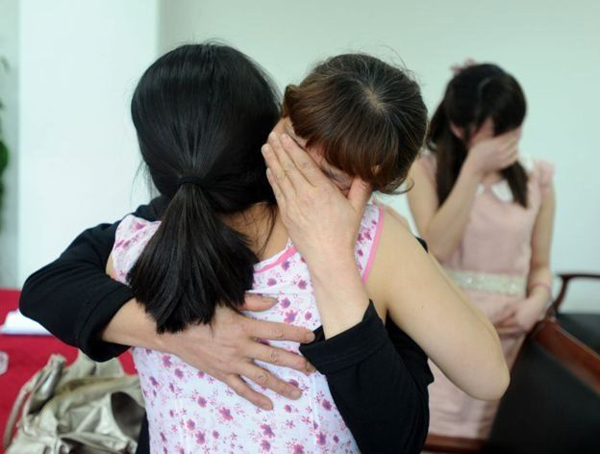Landslide buries five in Guizhou
At least five people were buried in a building hit by a landslide at Sunday dawn in southwest China’s Guizhou Province, local government said.
The landslide occurred at the village of Baga in Panxian County at 1:20 a.m. More than 300 police, fire fighters and medical workers have been mobilized for a rescue operation.
The cause of the landslide is being investigated.
Retail sales and inflation
The official forecasters and many commercial economic forecasters have now joined me in expecting around 2% growth in 2016 and 2017. They took their forecasts on a wild big dipper which I avoided, plunging their estimates to low growth or no growth. They thought both investment confidence and consumer confidence would bomb after the Brexit vote, but they now admit they were wrong.
Today our disagreements are a bit more technical and limited. I have agreed with them that inflation would pick up from the very low levels of last summer. It is doing so and may rise a bit more. I disagree with them that this is mainly owing to the fall in the value of the pound. It has been mainly owing to the surge in oil and other commodity prices, and some domestic wage drift in hotels and catering in particular as the living wage comes in. The rising inflation is an advanced world phenomenon where there is reasonable growth, not a Brexit one. German inflation has risen in lock step with ours, and US inflation has risen more.
I also disagree with them that the fall in the pound is the sole result of Brexit. There was a large fall in sterling from July 2015 to April 2016 before the vote, when most market participants and the polls were confident Remain would win. The yen and the Euro have also been weak against a strong dollar over much of this period. Interest rate differentials are the main factor likely to be affecting these cross rates. The US signalled early its wish to put up rates, has now put rates up to 1%, and intends to take them higher again this year. All the time the Bank of England and the ECB keep their rates on the floor the dollar is likely to be more favoured by those with footloose cash.
My other disagreement has been over retail sales. I saw no likelihood of a big fall in consumer confidence and retail sales after the vote. Even I was surprised by the acceleration, to reach an unsustainable growth rate of over 7%. The latest retail sales for the year to February show a solid 3.7% growth. If you take out motor fuels, hit by the oil price hike, volumes are up 4.1%. Many have been saying that rising inflation will wipe out real income gains, throttling back spending. We already have an inflation rate around the level of wage rate growth, yet retail sales growth sails on.
How can this be? People are working more hours, getting more bonus and overtime, more are joining the workforce. More are now willing to borrow to buy a car or a new home because there is more confidence about employment levels and employment prospects.
Lam Cheng Yuet-ngor wins election of HK’s fifth-term chief executive
|
Lam Cheng Yuet-ngor (2nd R) arrives at the Hong Kong Convention and Exhibition Center before the voting for the fifth-term chief executive of China’s Hong Kong Special Administrative Region (SAR), March 26, 2017. Lam Cheng Yuet-ngor wins the election of Hong Kong’s fifth-term chief executive by obtaining more than 600 votes. (Xinhua/Wang Xi) |
Lam Cheng Yuet-ngor on Sunday won the election of the fifth-term chief executive of China’s Hong Kong Special Administrative Region (SAR).
The Electoral Affairs Commission of the Hong Kong SAR declared that Lam garnered 777 of 1,163 valid votes.
Adopted girl searching for birth parents claimed by 50 families
Jenna Cook, a girl of Chinese origin adopted by an American school teacher over 20 years ago, returned to China to look for her birth parents.
|
|
|
Jenna and her adoptive mother, Margaret Cook. [Photo/Sina.com.cn] |
Before her arrival, the Yale student had no idea that her trip in search of her roots would touch so many people in Wuhan city: 50 families came forward in the hope that she might be their abandoned daughter.
Jenna Cook’s story started on March 24, 1992, when she was abandoned as a baby near a bus stop in Wuhan, capital of central China’s Hubei Province.
She was taken to the Wuhan Children’s Welfare House to be cared for.
In June that same year, she was adopted and given the name Jenna Cook by Margaret Cook, a primary schoolteacher who lived in Massachusetts.
Jenna was one of the first 200 Chinese babies to be adopted by American families. About 80,000 children born in China were estimated to have found homes in the United States, mostly girls.
Jenna always knew she was adopted. Living in an area with few Chinese faces around, Jenna’s adoptive mother tried her best to look after the girl and her younger sister, who was also a Chinese adoptee. She learned Mandarin, and all about China, socializing with other families with similar adoption backgrounds.
Despite Margaret’s best efforts to help her two daughters keep a link with their country of origin, Jenna yearned to find her birth parents.
At the age of 20, Jenna was admitted by Yale University, where she received a grant to fund a trip to China to look for her parents as part of an academic study program.
Accompanied by her adoptive mother, Jenna traveled to Wuhan in 2012 and managed to get her story posted in local newspapers. The article aroused huge public interest.
Dozens of families came forward to say that Jenna was their daughter, 50 of whom claimed to have left an infant in the street where Jenna was found in March, 1992.
|
|
|
Jenna Cook puts up a poster containing her story, trying to find her birth parents in Wuhan, capital of central China’s Hubei Province. [Photo/Sina.com.cn] |
During Jenna’s meetings with the 50 families, the girl found them all thoughtful and considerate. Every family treated Jenna as if she were their daughter. They asked Jenna about her life, wanting to know whether she had been well looked-after.
Jenna carried out DNA tests with 37 families, narrowed down from the 50 who’d come forward, but none of them turned to be related to Jenna.
|
|
|
Jenna hugs one of the mothers who came forward to claim her. Sadly DNA tests proved she was not Jenna’s mother. [Photo/Sina.com.cn] |
It’s reported that Jenna has left a sample of her DNA with police in Wuhan, leaving a hope for a possible reunion in the future.




